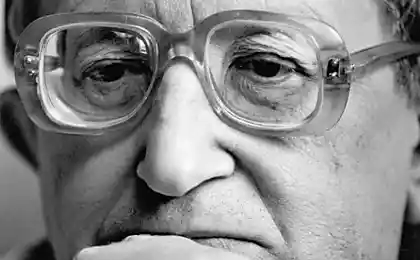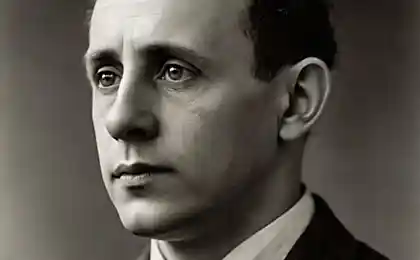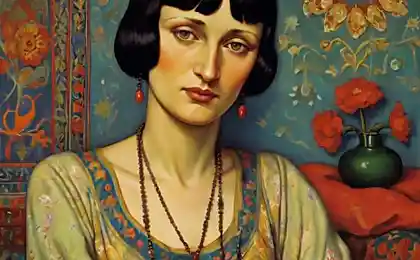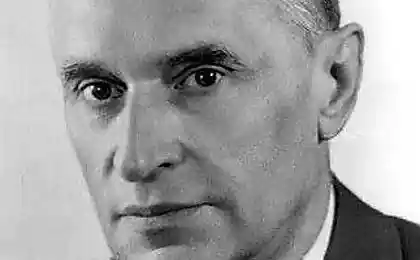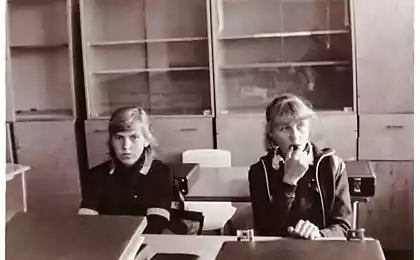227
What you need to know about Academician Likhachev
Academician Dmitry Sergeyevich Likhachev He lived a long life. He was born on November 15 (November 28 – in the new style) of 1906, and died on September 30, 1999, just a couple of months before he lived to 93 years. His life almost completely covered the XX century – a century filled with great and terrible events in Russian and world history.
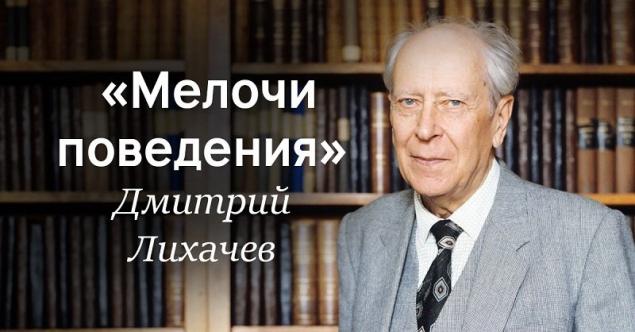
When we talk about our affairs and duties, we usually divide them into important and petty, great and small. Academician Likhachev had a higher view of human life: he believed that there are no unimportant affairs or duties, no trifles, no “little things of life”. Everything that happens in a person’s life is important to them.
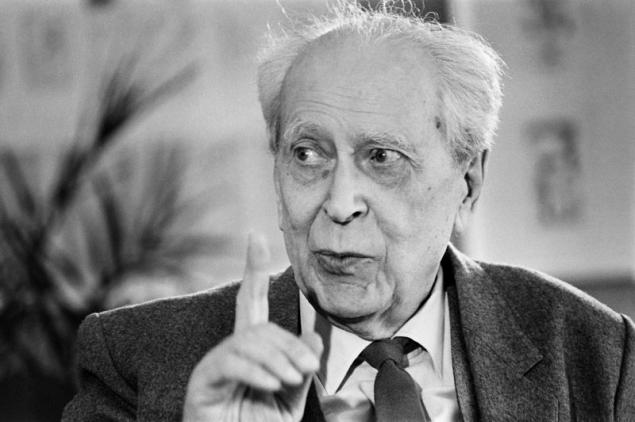
“In life one must have service, service to a cause. Let it be small, it will be great if you are faithful to it.”
Likhachev Dmitry Sergeevich Everyone has heard about Academician Likhachev, and more than once. He is called “a symbol of the Russian intelligentsia of the XX century”, “patriarch of Russian culture”, “outstanding scientist”, and “conscience of the nation”.
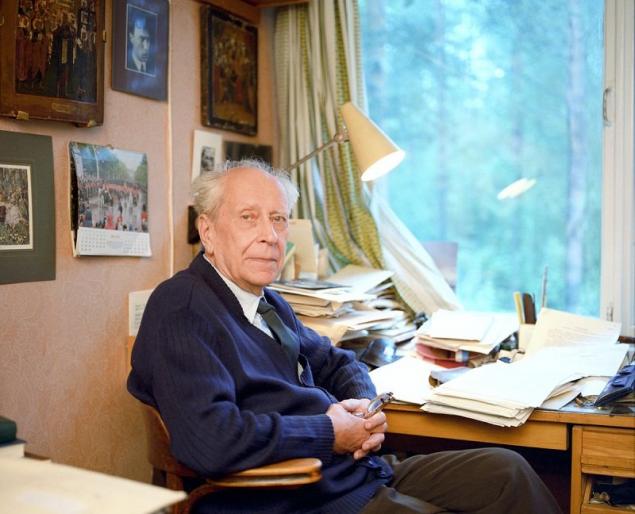
He had many titles: researcher of literature of Ancient Russia, author of many scientific and journalistic works, historian, publicist, public figure, honorary member of many European academies, founder of the journal "Our Heritage", dedicated to Russian culture.
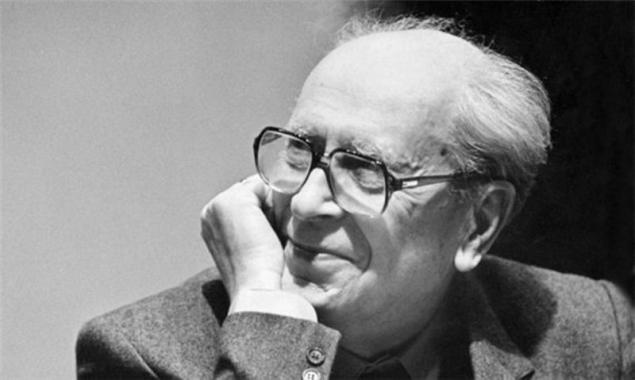
Behind the dry lines of Likhachev’s track record, the main thing to which he gave his strength, his spiritual energy, is lost – the protection, propaganda and popularization of Russian culture.
It was Likhachev who saved unique architectural monuments from destruction, thanks to the speeches of Dmitry Sergeyevich, thanks to his articles and letters, it was possible to prevent the collapse of many museums and libraries. Echoes of his performances on television could be caught in the subway, in the trolleys, just on the street.
It was said about him: "Finally, television showed a real Russian intellectual." Popularity, world fame, recognition in scientific circles. It's an idyllic picture. Meanwhile, behind the shoulders of Academician Likhachev is not a smooth path of life.
Dmitry Sereevich was born in St. Petersburg. According to his father, he is Orthodox, according to his mother, an Old Believer (previously, the documents did not write nationality, but religion). The example of Likhachev’s biography shows that hereditary intelligence is no less important than the nobility.
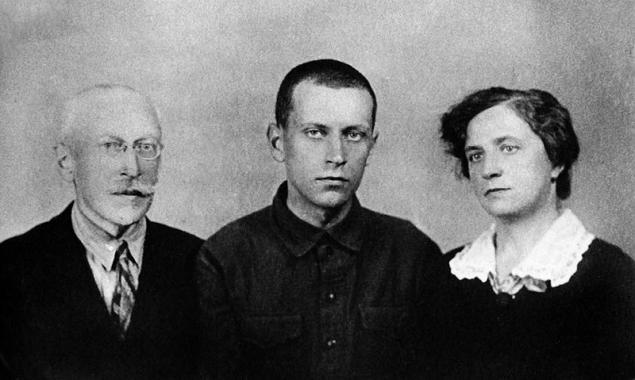
The Likhachevs lived modestly, but found an opportunity not to give up their passion - regular visits to the Mariinsky Theatre. And in the summer, they filmed a dacha in Kuokkale, where Dmitry joined the environment of artistic youth.
In 1923, Dmitry entered the ethnologic-linguistic department of the Faculty of Social Sciences of Petrograd University. At some point, he entered a student circle under the joking name “Space Academy of Sciences”.
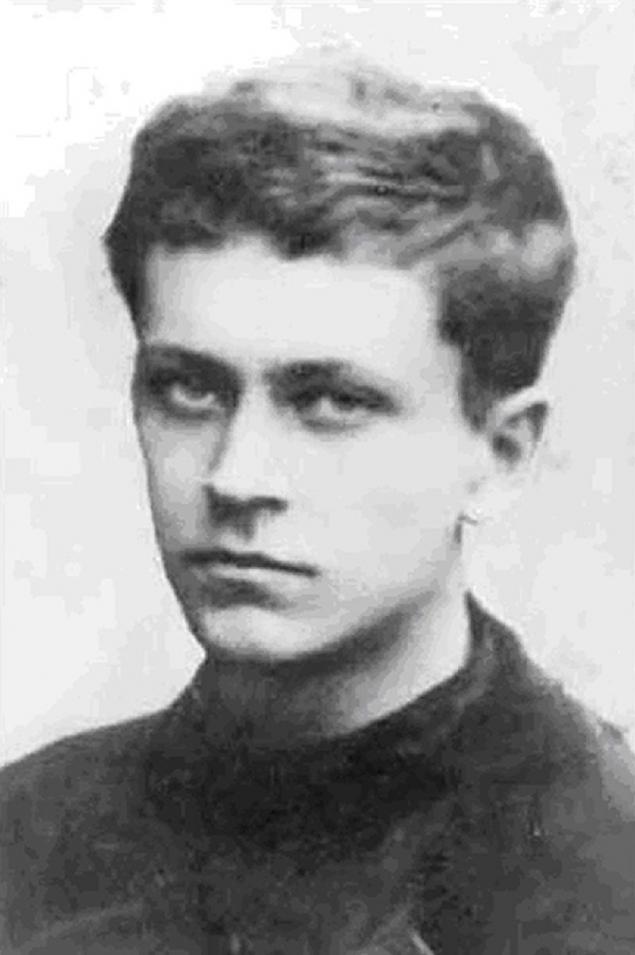
The participants of this circle regularly gathered, read and discussed each other's reports. In February 1928, Dmitry Likhachev was arrested for his participation in the circle and sentenced to 5 years for “counter-revolutionary activities.” The investigation lasted six months, after which Likhachev was sent to the Solovetsky camp.
Likhachev later called his experience in the camp his "second and main university." He changed several types of activities on Solovki. For example, he worked as an employee of the Criminology Cabinet and organized a labor colony for teenagers.
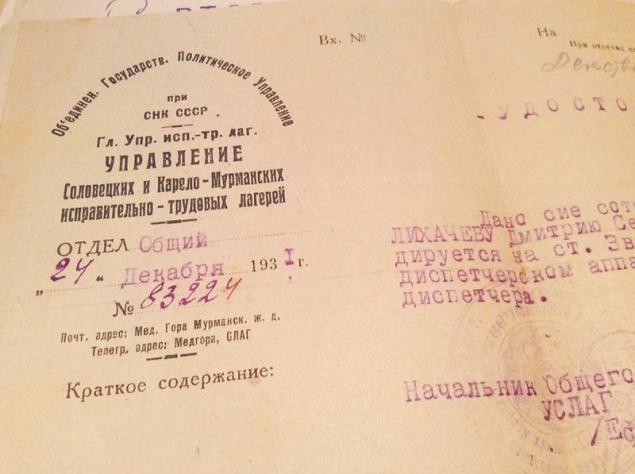
“From all this trouble, I came out with a new knowledge of life and a new state of mind,” said Dmitry Sergeyevich. The good that I managed to do to hundreds of teenagers, saving their lives, and many other people, the good received from the Solagerniks themselves, the experience of everything I saw created in me some very deeply buried peace and mental health.

Likhachev was released early in 1932. He returned to Leningrad, worked as a proofreader in the publishing house of the Academy of Sciences (the presence of a criminal record prevented him from getting a more serious job).
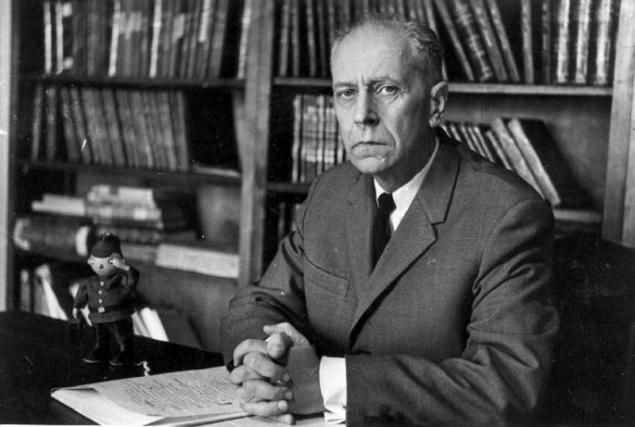
In 1938, through the efforts of the heads of the USSR Academy of Sciences, Likhachev’s criminal record was removed. Then Dmitry Sergeevich joined the Institute of Russian Literature of the Academy of Sciences of the USSR (Pushkin House).
Likhachev’s war (by that time Dmitry Sergeyevich was married, he had two daughters) was partially survived in the besieged Leningrad. After the terrible winter of 1941-1942, they were evacuated to Kazan. After his stay in the camp, the health of Dmitry Sergeyevich was undermined, and he was not subject to conscription to the front.
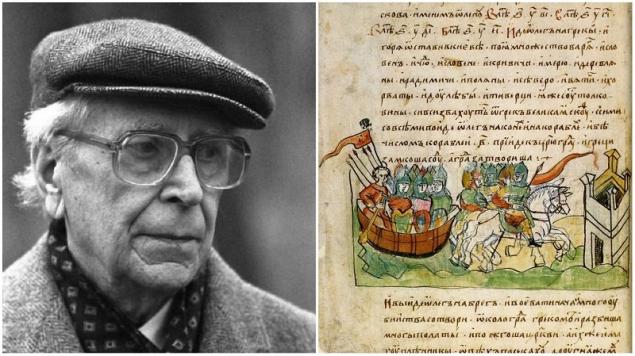
The main topic of Likhachev-scientist was ancient Russian literature. In 1950, under his scientific guidance, two books were prepared for publication in the series “Literary Monuments” – “The Tale of Bygone Years” and “The Word about Igor’s Regiment”.
Dmitry was able to find in the Russian Middle Ages that connects us with the past, because a person is part of society and part of its history. Through the prism of the history of the Russian language and literature, he comprehended the culture of his people and tried to familiarize his contemporaries with it.
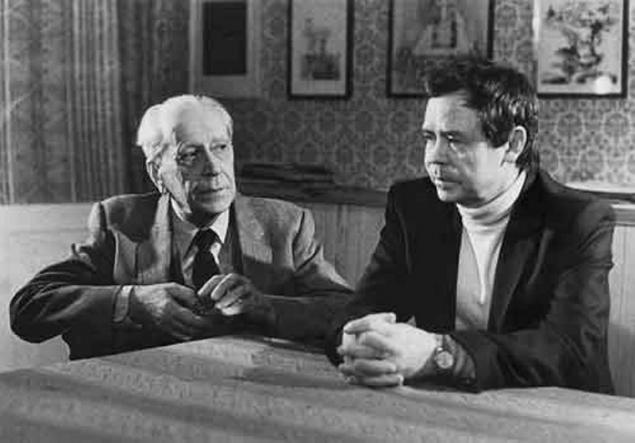
For more than fifty years he worked in the Pushkin House, headed the department of ancient Russian literature. And how many talented people Dmitry Sergeevich helped in life? Andrei Voznesensky wrote that Likhachev helped to come out with more than one “difficult” book.
And not only prefaces, but also letters, reviews, petitions, recommendations, advice. It is safe to say that dozens, hundreds of talented scientists and writers owe the support of Likhachev, who played an important role in their personal and creative destiny.
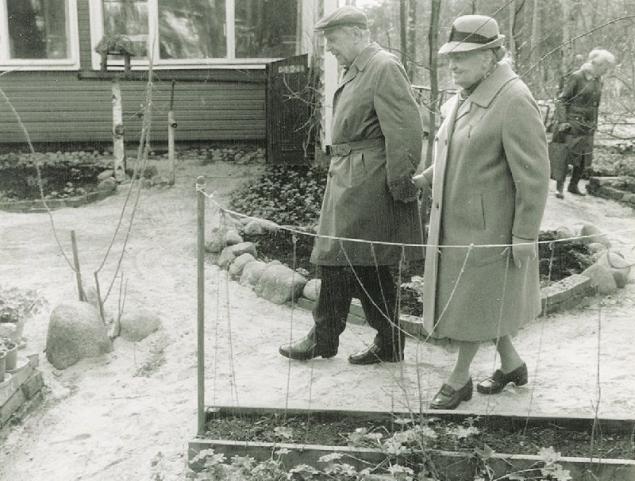
Academician Likhachev became the informal leader of our culture. When the Cultural Foundation appeared in our country, Dmitry Sergeevich from 1986 to 1993 became the permanent chairman of its board. At this time, the Cultural Foundation became a foundation for cultural ideas.
Likhachev perfectly understood that only a person who is morally complete and aesthetically receptive can save, preserve, and most importantly, extract all the spiritual richness of culture of past times. And he found perhaps the most effective way to reach the hearts and minds of his contemporaries was to perform on radio and television.
Likhachev is a patriot by nature, a patriot modest and unobtrusive. He wasn't an ascetic. Loved travel, comfort, but lived in a modest city apartment, cramped in modern terms for a world-class scientist. She was littered with books. And this is today, when the craving for luxury embraced all segments of society.
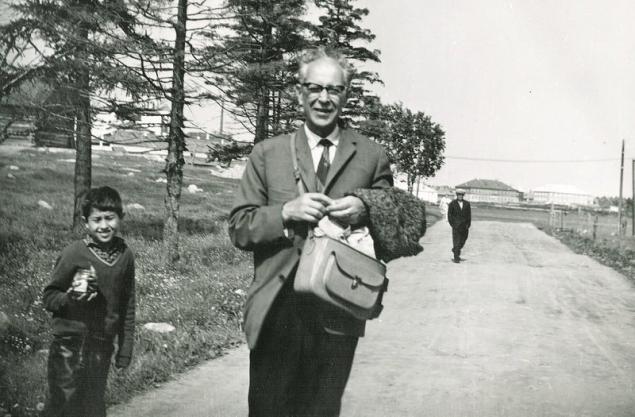
Dmitry Sergeyevich was unusually easy to climb. All journalists know how hard it was to find him at home. At the age of 90, he was interested in the whole world, and he was interesting to the whole world: all universities in the world invited him to visit, and Prince Charles helped him publish Pushkin manuscripts and gave him a lunch in his honor.
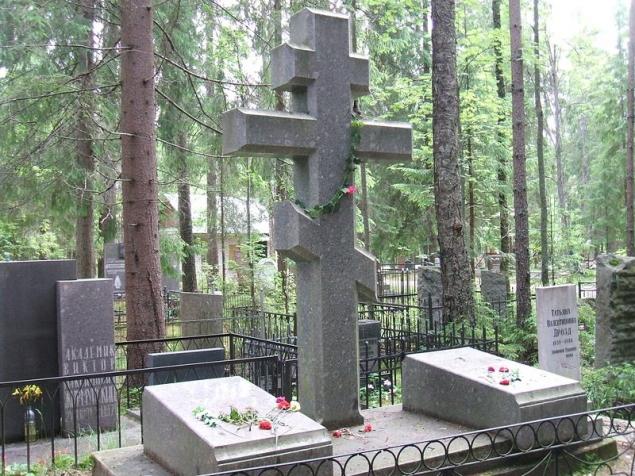
Even 2.5 months before his death in the summer of 1999, Likhachev agreed to speak at the Pushkin Conference in Italy. He died on September 30, 1999 and was buried in the Komarovskoye cemetery in St. Petersburg.
The last books of Likhachev are like sermons or teachings. What is Likhachev trying to convince us? What to explain, what to teach?
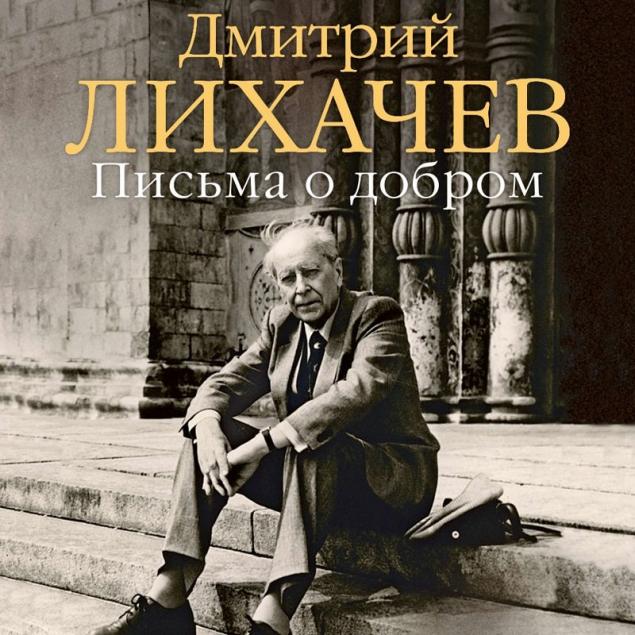
In the preface to the book “Letters on the Good and Beautiful”, Dmitry Sergeyevich writes: “Try to hold binoculars in trembling hands – you will not see anything.” To perceive the beauty of the surrounding world, a person must be spiritually beautiful.
Remembering Dmitry Sergeyevich, we read excerpts from his letters:
“What is the most important thing in life? The main thing is that everyone can have their own, unique. But the main thing should be good and significant. A person should think about the meaning of his life – look back at the past and look into the future.
People who do not care about anyone seem to fall out of memory, and people who served others, served in a smart way, have a good and significant purpose in life, are remembered for a long time.”
“What is the greatest purpose of life? I think: to increase the good in the world around us. Goodness is above all the happiness of all people. It is made up of many things, and every time life poses a task for a person, which is important to be able to solve. You can do good to a person in small things, you can also think about big things, but small things and big things cannot be separated.
“In life, kindness is most valuable... kindness is intelligent, purposeful. Knowing this, remembering it always and following the paths of kindness is very, very important.”
“Care is what unites people, strengthens the memory of the past, is aimed entirely at the future. This is not the feeling itself – this is a concrete manifestation of the feeling of love, friendship, patriotism. A man must be caring. An uncaring or carefree person is most likely a person who is unkind and does not love anyone.”
Belinsky somewhere in his letters, I remember, has this idea: scoundrels always prevail over decent people because they treat decent people as scoundrels, and decent people treat scoundrels as decent people.
A fool does not like an intelligent, uneducated, educated, unbred, etc. And all this under the cover of some phrase: “I am a simple man...”, “I do not like wisdom,” “I have lived my life without this,” “All this is from the evil one,” etc. And in the soul there is hatred, envy, a sense of inferiority.”
“The most admirable quality of man is love. In this connection of people is expressed most fully. And the interconnectedness of people (family, village, country, entire globe) is the foundation on which humanity stands.”
“Goodness cannot be stupid. A good deed is never stupid, for it is selfless and does not pursue the goal of gain or “smart result.” They say “nice” when they want to offend.
If man ceases to be a creative being and to be aspirant to the future, he ceases to be a man.
Greed is the oblivion of one’s own dignity, it is an attempt to put one’s material interests above oneself, it is a mental sluggishness, a terrible orientation of the mind, which is extremely limiting, mental rumination, pity, a yellowish view of the world, bitterness towards oneself and others, forgetting camaraderie.
“Life is first and foremost creativity, but that doesn’t mean that every person must be born an artist, a ballerina, or a scientist to live.”
“To live morally as if you were to die today, and to work as if you were immortal.”
“The earth is our tiny house, flying in an immensely large space.” It is a defenselessly flying in a colossal space museum, a collection of hundreds of thousands of museums, a close collection of works by hundreds of thousands of geniuses.
What is the Likhachev phenomenon? After all, he was essentially a lone fighter. He had no party, no movement, no influential position, no government leadership. Nothing. He had only moral authority and authority.
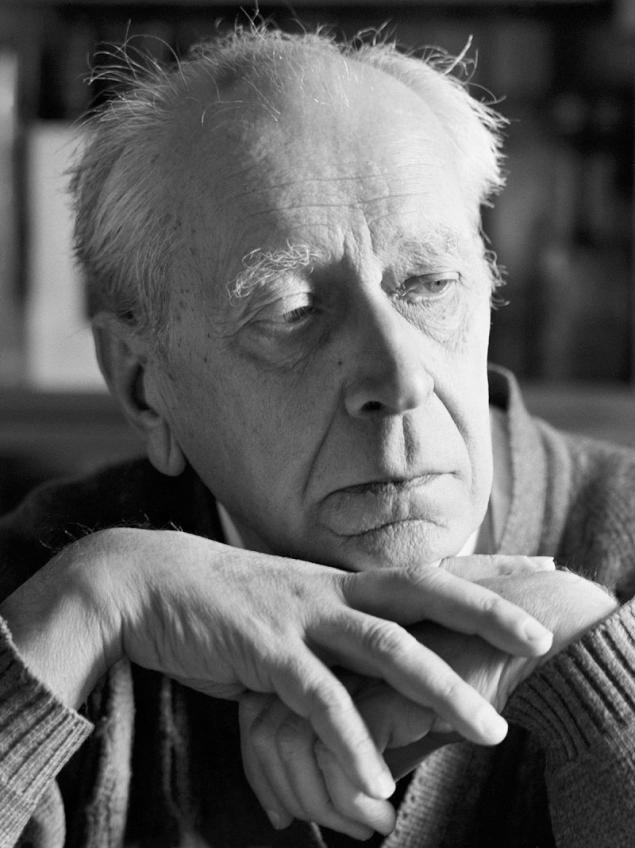
Those who keep today legaciesIt is necessary to remember Dmitry Sergeyevich more often, not only when national anniversary events are held.
The time has come for an honest attempt to rethink what is happening with the country and all of us, which is why appealing to cultural and moral values is especially important.
Why is one person happy, cheerful and full of energy, while another is sick and depressed? What is the secret to health, happiness and longevity? Especially for you, our editorial staff has selected 11 of the most interesting quotes from Sergey Lazarev.
Learn how to stop criticizing yourself and touch the healing power of love. Try to follow these recommendations, and life will be filled with new energy that can heal the soul and body.

When we talk about our affairs and duties, we usually divide them into important and petty, great and small. Academician Likhachev had a higher view of human life: he believed that there are no unimportant affairs or duties, no trifles, no “little things of life”. Everything that happens in a person’s life is important to them.

“In life one must have service, service to a cause. Let it be small, it will be great if you are faithful to it.”
Likhachev Dmitry Sergeevich Everyone has heard about Academician Likhachev, and more than once. He is called “a symbol of the Russian intelligentsia of the XX century”, “patriarch of Russian culture”, “outstanding scientist”, and “conscience of the nation”.

He had many titles: researcher of literature of Ancient Russia, author of many scientific and journalistic works, historian, publicist, public figure, honorary member of many European academies, founder of the journal "Our Heritage", dedicated to Russian culture.

Behind the dry lines of Likhachev’s track record, the main thing to which he gave his strength, his spiritual energy, is lost – the protection, propaganda and popularization of Russian culture.
It was Likhachev who saved unique architectural monuments from destruction, thanks to the speeches of Dmitry Sergeyevich, thanks to his articles and letters, it was possible to prevent the collapse of many museums and libraries. Echoes of his performances on television could be caught in the subway, in the trolleys, just on the street.
It was said about him: "Finally, television showed a real Russian intellectual." Popularity, world fame, recognition in scientific circles. It's an idyllic picture. Meanwhile, behind the shoulders of Academician Likhachev is not a smooth path of life.
Dmitry Sereevich was born in St. Petersburg. According to his father, he is Orthodox, according to his mother, an Old Believer (previously, the documents did not write nationality, but religion). The example of Likhachev’s biography shows that hereditary intelligence is no less important than the nobility.

The Likhachevs lived modestly, but found an opportunity not to give up their passion - regular visits to the Mariinsky Theatre. And in the summer, they filmed a dacha in Kuokkale, where Dmitry joined the environment of artistic youth.
In 1923, Dmitry entered the ethnologic-linguistic department of the Faculty of Social Sciences of Petrograd University. At some point, he entered a student circle under the joking name “Space Academy of Sciences”.

The participants of this circle regularly gathered, read and discussed each other's reports. In February 1928, Dmitry Likhachev was arrested for his participation in the circle and sentenced to 5 years for “counter-revolutionary activities.” The investigation lasted six months, after which Likhachev was sent to the Solovetsky camp.
Likhachev later called his experience in the camp his "second and main university." He changed several types of activities on Solovki. For example, he worked as an employee of the Criminology Cabinet and organized a labor colony for teenagers.

“From all this trouble, I came out with a new knowledge of life and a new state of mind,” said Dmitry Sergeyevich. The good that I managed to do to hundreds of teenagers, saving their lives, and many other people, the good received from the Solagerniks themselves, the experience of everything I saw created in me some very deeply buried peace and mental health.

Likhachev was released early in 1932. He returned to Leningrad, worked as a proofreader in the publishing house of the Academy of Sciences (the presence of a criminal record prevented him from getting a more serious job).

In 1938, through the efforts of the heads of the USSR Academy of Sciences, Likhachev’s criminal record was removed. Then Dmitry Sergeevich joined the Institute of Russian Literature of the Academy of Sciences of the USSR (Pushkin House).
Likhachev’s war (by that time Dmitry Sergeyevich was married, he had two daughters) was partially survived in the besieged Leningrad. After the terrible winter of 1941-1942, they were evacuated to Kazan. After his stay in the camp, the health of Dmitry Sergeyevich was undermined, and he was not subject to conscription to the front.

The main topic of Likhachev-scientist was ancient Russian literature. In 1950, under his scientific guidance, two books were prepared for publication in the series “Literary Monuments” – “The Tale of Bygone Years” and “The Word about Igor’s Regiment”.
Dmitry was able to find in the Russian Middle Ages that connects us with the past, because a person is part of society and part of its history. Through the prism of the history of the Russian language and literature, he comprehended the culture of his people and tried to familiarize his contemporaries with it.

For more than fifty years he worked in the Pushkin House, headed the department of ancient Russian literature. And how many talented people Dmitry Sergeevich helped in life? Andrei Voznesensky wrote that Likhachev helped to come out with more than one “difficult” book.
And not only prefaces, but also letters, reviews, petitions, recommendations, advice. It is safe to say that dozens, hundreds of talented scientists and writers owe the support of Likhachev, who played an important role in their personal and creative destiny.

Academician Likhachev became the informal leader of our culture. When the Cultural Foundation appeared in our country, Dmitry Sergeevich from 1986 to 1993 became the permanent chairman of its board. At this time, the Cultural Foundation became a foundation for cultural ideas.
Likhachev perfectly understood that only a person who is morally complete and aesthetically receptive can save, preserve, and most importantly, extract all the spiritual richness of culture of past times. And he found perhaps the most effective way to reach the hearts and minds of his contemporaries was to perform on radio and television.
Likhachev is a patriot by nature, a patriot modest and unobtrusive. He wasn't an ascetic. Loved travel, comfort, but lived in a modest city apartment, cramped in modern terms for a world-class scientist. She was littered with books. And this is today, when the craving for luxury embraced all segments of society.

Dmitry Sergeyevich was unusually easy to climb. All journalists know how hard it was to find him at home. At the age of 90, he was interested in the whole world, and he was interesting to the whole world: all universities in the world invited him to visit, and Prince Charles helped him publish Pushkin manuscripts and gave him a lunch in his honor.

Even 2.5 months before his death in the summer of 1999, Likhachev agreed to speak at the Pushkin Conference in Italy. He died on September 30, 1999 and was buried in the Komarovskoye cemetery in St. Petersburg.
The last books of Likhachev are like sermons or teachings. What is Likhachev trying to convince us? What to explain, what to teach?

In the preface to the book “Letters on the Good and Beautiful”, Dmitry Sergeyevich writes: “Try to hold binoculars in trembling hands – you will not see anything.” To perceive the beauty of the surrounding world, a person must be spiritually beautiful.
Remembering Dmitry Sergeyevich, we read excerpts from his letters:
“What is the most important thing in life? The main thing is that everyone can have their own, unique. But the main thing should be good and significant. A person should think about the meaning of his life – look back at the past and look into the future.
People who do not care about anyone seem to fall out of memory, and people who served others, served in a smart way, have a good and significant purpose in life, are remembered for a long time.”
“What is the greatest purpose of life? I think: to increase the good in the world around us. Goodness is above all the happiness of all people. It is made up of many things, and every time life poses a task for a person, which is important to be able to solve. You can do good to a person in small things, you can also think about big things, but small things and big things cannot be separated.
“In life, kindness is most valuable... kindness is intelligent, purposeful. Knowing this, remembering it always and following the paths of kindness is very, very important.”
“Care is what unites people, strengthens the memory of the past, is aimed entirely at the future. This is not the feeling itself – this is a concrete manifestation of the feeling of love, friendship, patriotism. A man must be caring. An uncaring or carefree person is most likely a person who is unkind and does not love anyone.”
Belinsky somewhere in his letters, I remember, has this idea: scoundrels always prevail over decent people because they treat decent people as scoundrels, and decent people treat scoundrels as decent people.
A fool does not like an intelligent, uneducated, educated, unbred, etc. And all this under the cover of some phrase: “I am a simple man...”, “I do not like wisdom,” “I have lived my life without this,” “All this is from the evil one,” etc. And in the soul there is hatred, envy, a sense of inferiority.”
“The most admirable quality of man is love. In this connection of people is expressed most fully. And the interconnectedness of people (family, village, country, entire globe) is the foundation on which humanity stands.”
“Goodness cannot be stupid. A good deed is never stupid, for it is selfless and does not pursue the goal of gain or “smart result.” They say “nice” when they want to offend.
If man ceases to be a creative being and to be aspirant to the future, he ceases to be a man.
Greed is the oblivion of one’s own dignity, it is an attempt to put one’s material interests above oneself, it is a mental sluggishness, a terrible orientation of the mind, which is extremely limiting, mental rumination, pity, a yellowish view of the world, bitterness towards oneself and others, forgetting camaraderie.
“Life is first and foremost creativity, but that doesn’t mean that every person must be born an artist, a ballerina, or a scientist to live.”
“To live morally as if you were to die today, and to work as if you were immortal.”
“The earth is our tiny house, flying in an immensely large space.” It is a defenselessly flying in a colossal space museum, a collection of hundreds of thousands of museums, a close collection of works by hundreds of thousands of geniuses.
What is the Likhachev phenomenon? After all, he was essentially a lone fighter. He had no party, no movement, no influential position, no government leadership. Nothing. He had only moral authority and authority.

Those who keep today legaciesIt is necessary to remember Dmitry Sergeyevich more often, not only when national anniversary events are held.
The time has come for an honest attempt to rethink what is happening with the country and all of us, which is why appealing to cultural and moral values is especially important.
Why is one person happy, cheerful and full of energy, while another is sick and depressed? What is the secret to health, happiness and longevity? Especially for you, our editorial staff has selected 11 of the most interesting quotes from Sergey Lazarev.
Learn how to stop criticizing yourself and touch the healing power of love. Try to follow these recommendations, and life will be filled with new energy that can heal the soul and body.
A Japanese man takes a 16-meter roll of aluminum foil and clumps it. Why? It turns out something...
Five bad names for kids


